{multithumb thumb_width=200} Bezoek cleanroom Ruimtevaartonderzoeksinstituut SRON opent aanstaande zondag 6 oktober weer haar deuren voor publiek op locaties in Utrecht en Groningen. Nieuw dit jaar is Foton Race, een gigantisch planeten bordspel op de vloer. Ook kunnen bezoekers de nieuwste SRON film bekijken: ‘Werken aan Tropomi, een wakend oog op de aarde’. Tijdens de Open …
Category: News items
Trying to solve the global methane puzzle
{multithumb thumb_width=200} A group of international scientists have joined forces to synthesize the scientific evidence on intriguing decadal trends in the greenhouse gas methane. They.48 Scientists from 34 Institutions worldwide, including SRON, cooperate under the umbrella of the Global Carbon Project (GCP), trying to solve the complicated global methane puzzle. The aim is to reevaluate …
Open Days 2013: encounter the secrets of space research
{multithumb thumb_width=200} Ruimteonderzoeksinstituut SRON gooit op zondagmiddag 6 oktober 2013 de deuren wagenwijd open voor publiek. Op lokaties in Utrecht en Groningen vertellen ingenieurs en wetenschappers alles over de nieuwste ontwikkelingen in het aardatmosfeer- en ruimteonderzoek. Kinderen kunnen als echte professoren proefjes doen in het pretlab. Bezoekers gaan de cleanroom in Op 6 oktober kan …
Second iSPEX Measurement Day
Donderdag 5 september vindt de tweede Nationale iSPEX-meetdag plaats. De succesvolle eerste meetdag op 8 juli, leverde bijna 6000 metingen op van deelnemers die met behulp van het iSPEX-opzetstukje op hun smartphone-camera opnamen maakten van de blauwe lucht en het fijnstof daarin. De dag erna kwamen nog eens enkele duizenden metingen binnen. Het primaire doel …
Thousands of measurements on Dutch iSPEX Measurment Day
De eerste Nationale iSPEX-meetdag heeft 5000 metingen opgeleverd. Daarmee zijn genoeg gegevens gegenereerd om de iSPEX-meetdag een valide wetenschappelijk experiment te noemen. iSPEX-teamleider Frans Snik is blij dat de respons zo massaal was, ondanks het lange wachten op mooi weer en de aangebroken vakantieperiode. SRON-onderzoeker Jeroen Rietjens meet met zijn iPhone de fijnstof in de …
Baryshev and Van der Tak honorary professors at RUG
SRON-onderzoekers Floris van der Tak en Andrey Baryshev zijn beiden benoemd tot bijzonder hoogleraar aan de Rijksuniversiteit Groningen. Baryshev is per 16 juli 2013 benoemd tot hoogleraar Astronomische Instrumentatie voor Ver-Infrarode Golflengten. Floris van der Tak is per 17 juni 2013 benoemd tot hoogleraar submillimeter sterrenkunde. De benoemingen hebben tot doel de bestaande samenwerking tussen …
Today first National iSPEX Measurement Day
Na lang wachten op mooi weer is het eindelijk zover: duizenden Nederlanders gaan met behulp van het iSPEX-opzetstukje op hun smartphone-camera metingen verrichten aan fijnstof in de lucht. Voor het wetenschappelijke experiment is boven heel Nederland een grotendeels blauwe lucht noodzakelijk, en dat is vandaag het geval. Alle 10.000 iSPEX-opzetstukjes zijn verspreid, maar omdat in …
Our Milky Way contains much more building blocks for stars than known before
{multithumb thumb_width=200} The stuff of stars is not always easy to see. But thanks to the Dutch Molecule Hunter HIFI hidden pools of gas in our galaxy are being mapped better than before. Astronomers found that our Milky Way is equipped with a lot more raw building blocks for stars than known before. This illustration …
Neutron stars as space laboratories
In de week van 6-10 mei komen sterrenkundigen uit de hele wereld samen in Amsterdam voor een symposium over neutronensterren. In debatcentrum Felix Meritis bespreken zij de jongste resultaten van het onderzoek aan neutronensterren, ineengestorte kernen van reuzensterren die als supernova’s zijn geëxplodeerd. Vanwege hun extreem samengebalde materie kunnen neutronensterren uitstekend dienen als laboratoria om …
End of mission for Dutch molecule hunter in space
HIFI opened up new window on Molecular Universe Today, after more than 3,5 years in space, the liquid helium coolant on board the Herschel space observatory (ESA) has finally run out. This means that the Dutch molecule hunter HIFI – one of its three instruments – has ceased to collect spectra. But the scientific heritage …










